
As the world opens its doors wider than ever, a new traveler’s dilemma emerges: how do we satisfy our wanderlust without compromising the health of our planet? In 2025, the concept of travel guilt has taken on a life of its own, as adventurers grapple with the impact of their journeys. With stunning landscapes calling and vibrant cultures beckoning, it’s easy to get lost in excitement—yet beneath that thrill lies a weighty responsibility. Join us as we dive into this complex landscape where responsible exploration meets personal passion.
Think “Less, But Better”
In 2025, the flex isn’t how many countries you’ve checked off—it’s how deeply you’ve experienced a place. That quick-hit, five-cities-in-seven-days vibe is out. Slow travel is in. Instead of rushing through destinations for the Instagram shot, spend more time in fewer places. Not only does this cut down on carbon emissions (fewer flights = fewer problems), but it also gives you a more meaningful connection to where you are. You get to support local businesses, discover underrated spots, and settle into the rhythm of a place. Quality over quantity is the move.
Go Local or Go Home
One of the easiest ways to be a more responsible traveler? Keep your money in the community. In 2025, travelers are moving away from big global chains and leaning into local experiences—think family-run guesthouses, farm-to-table meals, and neighborhood tour guides who live there. It’s not just more ethical—it’s more fun. You’ll get more authentic stories, better recommendations, and a real feel for the culture. Plus, supporting small businesses helps fight back against the gentrification and cultural erasure that over-tourism can cause.
Flights Happen—Offset What You Can

Let’s be real: most of us aren’t giving up planes completely, and that’s okay. But if you’re flying, you can take steps to reduce your impact. In 2025, carbon offsetting has gotten easier and more legitimate. Look for certified programs that support renewable energy, forest restoration, or clean cooking projects. Some airlines even let you offset right when you book your ticket. It’s not a perfect solution, but it’s better than nothing—and combined with other low-impact travel choices, it makes a difference.
Respect the Culture, Not Just the Aesthetic
Travel isn’t just about pretty views and cute cafés—it’s about stepping into someone else’s world with respect. And that means doing a little homework before you land. Learn a few local phrases. Understand the customs. Dress appropriately, especially in religious or conservative areas. In 2025, cultural sensitivity is non-negotiable. It’s the difference between being a traveler and being a tourist. The goal isn’t to take—it’s to connect. The more you give (your attention, your respect, your curiosity), the more you’ll get back.
Leave No Trace—Literally and Digitally
Everyone knows not to litter, but in the age of geotagging and viral travel content, we’re also leaving digital footprints that can cause damage. That “secret beach” you post on TikTok? It might not be so secret tomorrow. In 2025, responsible travel means thinking twice before you blow up a spot online. Be mindful of how and where you share, and consider protecting places that aren’t equipped for mass tourism. Also, go old school with physical habits: bring a reusable water bottle, say no to hotel mini toiletries, and avoid single-use plastics when you can. It all adds up.
You don’t have to cancel your bucket list to be a responsible traveler in 2025—you just need to be intentional. Travel guilt is a sign that you care, and that’s a good thing. Let it guide you, not stop you. With a little thought and a lot of heart, you can explore the world in a way that respects it. And honestly? Those kinds of trips feel way better anyway.







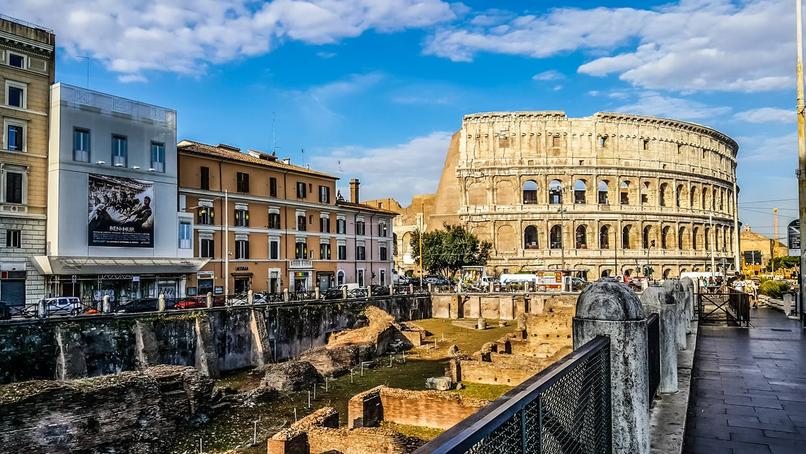
 The bustling city of Sydney is the perfect destination for a mix of urban and outdoor activities. From iconic beaches like Bondi Beach to cultural attractions such as the Sydney Opera House and Royal Botanic Garden, there are plenty of things to explore in this vibrant city. For those looking for an outdoor adventure, head to the Blue Mountains for incredible hikes and breathtaking views.
The bustling city of Sydney is the perfect destination for a mix of urban and outdoor activities. From iconic beaches like Bondi Beach to cultural attractions such as the Sydney Opera House and Royal Botanic Garden, there are plenty of things to explore in this vibrant city. For those looking for an outdoor adventure, head to the Blue Mountains for incredible hikes and breathtaking views.
 One of the most critical aspects of planning a road trip is mapping out your route. You will want to make sure that you choose a scenic road that includes exciting stops. It will help break up the long hours of driving and give you something to look forward to. When choosing your route, be sure to consider the time of year, as some roads may be closed due to weather conditions. Another essential thing to consider when planning your route is the type of vehicle you will be driving. Some roads in Europe are not suitable for large vehicles, so it is essential to plan accordingly.
One of the most critical aspects of planning a road trip is mapping out your route. You will want to make sure that you choose a scenic road that includes exciting stops. It will help break up the long hours of driving and give you something to look forward to. When choosing your route, be sure to consider the time of year, as some roads may be closed due to weather conditions. Another essential thing to consider when planning your route is the type of vehicle you will be driving. Some roads in Europe are not suitable for large vehicles, so it is essential to plan accordingly.
 No matter how well you plan, there is always a chance something can go wrong on your road trip. That is why it is essential to be prepared for delays and unexpected changes. Make sure you have extra food and water in case you get stranded. Additionally, it is always good to have a first-aid kit on hand in case of any minor injuries. By being prepared for the worst, you can rest assured that you will still have a great time on your road trip.
No matter how well you plan, there is always a chance something can go wrong on your road trip. That is why it is essential to be prepared for delays and unexpected changes. Make sure you have extra food and water in case you get stranded. Additionally, it is always good to have a first-aid kit on hand in case of any minor injuries. By being prepared for the worst, you can rest assured that you will still have a great time on your road trip.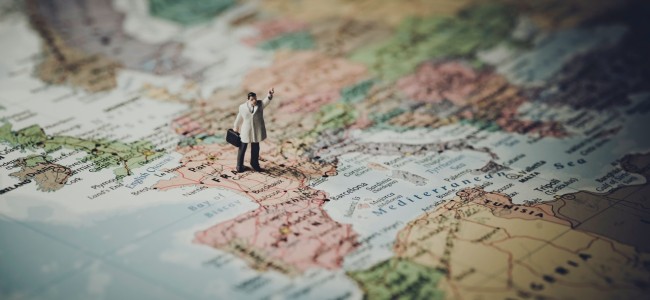
 Planning for a trip may seem straightforward, but various considerations make it intricate. Many people assume preparation means having your travel documents, attires, and arriving early at your specific station. However, planning includes choosing a destination, identifying potential accommodation facilities, renting a car, among other things. When making preparations, ensure that you address every aspect of your travel to avoid difficulties.
Planning for a trip may seem straightforward, but various considerations make it intricate. Many people assume preparation means having your travel documents, attires, and arriving early at your specific station. However, planning includes choosing a destination, identifying potential accommodation facilities, renting a car, among other things. When making preparations, ensure that you address every aspect of your travel to avoid difficulties. Maybe researching isn’t right up in your alley, and this is understandable. Take advantage of the numerous travel vlogs available on YouTube and various social media platforms. You are likely to find a vlogger who has previously visited the places you want to visit. The vlogs’ information is enough to make you feel like you have already set foot in the place. By the time that you are making your journey, you should know what there is to know about your destination.
Maybe researching isn’t right up in your alley, and this is understandable. Take advantage of the numerous travel vlogs available on YouTube and various social media platforms. You are likely to find a vlogger who has previously visited the places you want to visit. The vlogs’ information is enough to make you feel like you have already set foot in the place. By the time that you are making your journey, you should know what there is to know about your destination.
 apshots in a perfect way possible. The arena of photography is dependent on particular essential factors such as photography devices, relevant experience, and artistic approach to capture beautiful and graceful wedding moments. By hiring a professional wedding photographer, this enables you to get incredible pictures. This will raise charm of memories.
apshots in a perfect way possible. The arena of photography is dependent on particular essential factors such as photography devices, relevant experience, and artistic approach to capture beautiful and graceful wedding moments. By hiring a professional wedding photographer, this enables you to get incredible pictures. This will raise charm of memories. with all bridal ceremony members. They capture real emotions of the members during the wedding party. Moreover, they interact with them in a manner that is compassionate and relaxing.
with all bridal ceremony members. They capture real emotions of the members during the wedding party. Moreover, they interact with them in a manner that is compassionate and relaxing.



 As a foreigner in Australia particularly in the magnificent Swan Valley, it would be somewhat difficult for you to explore the place without a guide. That is why most tourists book a package tour through the different tour companies like d’Vine Tours. This will guarantee that you will be able to go around the area with ease and convenience. Therefore, even before the day of your flight, you should consider getting in contact with a reliable tour company.
As a foreigner in Australia particularly in the magnificent Swan Valley, it would be somewhat difficult for you to explore the place without a guide. That is why most tourists book a package tour through the different tour companies like d’Vine Tours. This will guarantee that you will be able to go around the area with ease and convenience. Therefore, even before the day of your flight, you should consider getting in contact with a reliable tour company. Another great way of finding a reliable tour company is to ask the people you know particularly those who have already traveled to Australia. But before you contact the company, make sure that you gather all the information that you need and come up with a well-informed decision.
Another great way of finding a reliable tour company is to ask the people you know particularly those who have already traveled to Australia. But before you contact the company, make sure that you gather all the information that you need and come up with a well-informed decision.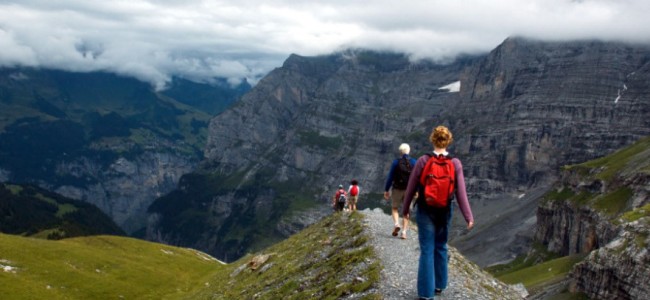
 You should always know where you are going at all times. You should do some research to see what other people have posted about the place you are going to be hiking. Make some phone calls and see if there are any permits that you might have to buy before entering the mountain or park range.
You should always know where you are going at all times. You should do some research to see what other people have posted about the place you are going to be hiking. Make some phone calls and see if there are any permits that you might have to buy before entering the mountain or park range. If you will be doing an overnight, then it would be a good idea to have an excellent flashlight that has a good battery life. You will need to see in the night to get fire wood or whatever you may need.
If you will be doing an overnight, then it would be a good idea to have an excellent flashlight that has a good battery life. You will need to see in the night to get fire wood or whatever you may need.
 Aside from the weapons that are provided to you in a gun club, the shooting range is also one factor that you need to look at when choosing a venue. With an excellent range, you will completely experience the thrill and adventure without having to worry about the local authorities running after you. Gun clubs are licensed to carry out such activities, and they are within a controlled environment, and so, your safety is guaranteed as long as you follow the rules and regulations.
Aside from the weapons that are provided to you in a gun club, the shooting range is also one factor that you need to look at when choosing a venue. With an excellent range, you will completely experience the thrill and adventure without having to worry about the local authorities running after you. Gun clubs are licensed to carry out such activities, and they are within a controlled environment, and so, your safety is guaranteed as long as you follow the rules and regulations. Most gun clubs are offering both indoor and outdoor shooting. However, you have to keep in mind that indoor would cost you a little bit more than outdoor because you will be using special ammunition. But again, this would still depend on your preference. Each area has its own pros and cons, and so, you have to decide before you sign up or make a booking with a gun club.
Most gun clubs are offering both indoor and outdoor shooting. However, you have to keep in mind that indoor would cost you a little bit more than outdoor because you will be using special ammunition. But again, this would still depend on your preference. Each area has its own pros and cons, and so, you have to decide before you sign up or make a booking with a gun club.
 How big or small do you want your luggage to be? What you will be carrying for your trip will determine which kind of luggage you will require. If you are catching a flight, some airlines will specify the kind of luggage you will carry, or you may have to incur extra charges should one exceed the recommended luggage size. One should know what kind of luggage will suit their items while at the same time putting into consideration the above in the case or such airlines.
How big or small do you want your luggage to be? What you will be carrying for your trip will determine which kind of luggage you will require. If you are catching a flight, some airlines will specify the kind of luggage you will carry, or you may have to incur extra charges should one exceed the recommended luggage size. One should know what kind of luggage will suit their items while at the same time putting into consideration the above in the case or such airlines. One should go for high-quality luggage. This is because there are many unseen incidents like bumping on other bags as you wheel through the airport, bumping your luggage with the car trunk accidentally. Such incidents need high-quality luggage. High-quality luggage will ensure that your items are still intact and so will be your bag. A low-quality bag will make your items break, or the luggage itself will tear or break when bumped on something hard. One should be careful to know which kind of material will be able to withstand all that but still look good.
One should go for high-quality luggage. This is because there are many unseen incidents like bumping on other bags as you wheel through the airport, bumping your luggage with the car trunk accidentally. Such incidents need high-quality luggage. High-quality luggage will ensure that your items are still intact and so will be your bag. A low-quality bag will make your items break, or the luggage itself will tear or break when bumped on something hard. One should be careful to know which kind of material will be able to withstand all that but still look good.
 de or pre-selection, there are high chances that you will end up buying something that is not good. This is due to the presence of a large selection of tents offering different utilities.
de or pre-selection, there are high chances that you will end up buying something that is not good. This is due to the presence of a large selection of tents offering different utilities. fact, most stores retail at a price not more than $220. The above tent is applauded for its ease to set-up procedures and comfort interiors.
fact, most stores retail at a price not more than $220. The above tent is applauded for its ease to set-up procedures and comfort interiors.
 When preparing for such tours you have to carry heavy and light clothes, the weather or climate of the area may be harsh and unfriendly. Heavy clothing will assist when the weather may be cold and light will assist during the day as the strong sun rays heat the grounds. Swimming clothes may also be required as there will be temptations to swim during free times. Carrying a camera also is important as photos will be taken in the area of visit, it will be a good source of collecting data.
When preparing for such tours you have to carry heavy and light clothes, the weather or climate of the area may be harsh and unfriendly. Heavy clothing will assist when the weather may be cold and light will assist during the day as the strong sun rays heat the grounds. Swimming clothes may also be required as there will be temptations to swim during free times. Carrying a camera also is important as photos will be taken in the area of visit, it will be a good source of collecting data. The price always plays a major role when planning a tour. If you plan on hiring a tours and travels company, you still need to fix a budget. If you are traveling with a large group, you may have to talk to all the working members to see if the budget fixed is affordable for all. One also needs to focus on minor details to ensure that if you opt for a tour package, vital details such as transport and accommodation for all are organized well
The price always plays a major role when planning a tour. If you plan on hiring a tours and travels company, you still need to fix a budget. If you are traveling with a large group, you may have to talk to all the working members to see if the budget fixed is affordable for all. One also needs to focus on minor details to ensure that if you opt for a tour package, vital details such as transport and accommodation for all are organized well
 been shown to led to considerable fat accumulation.
been shown to led to considerable fat accumulation. Nowadays, there are many companies out there producing and selling weight loss supplements. It is necessary to know what you are looking at before investing your hard-earned cash. Ensure any Pure Cambogia Ultra supplement you buy must contain over 50% of HCA. Moreover, it should not include additives, fillers, binders, artificial ingredients, or preservatives.
Nowadays, there are many companies out there producing and selling weight loss supplements. It is necessary to know what you are looking at before investing your hard-earned cash. Ensure any Pure Cambogia Ultra supplement you buy must contain over 50% of HCA. Moreover, it should not include additives, fillers, binders, artificial ingredients, or preservatives.

 In the field, you need to stay focused on the task. Do not lose time by fidgeting with your pack or struggling to find the gear you need when the moment arrives. Thus, getting a backpack that will allow you easy access and use is critical. Tactical backpacks offer just enough space for storage.
In the field, you need to stay focused on the task. Do not lose time by fidgeting with your pack or struggling to find the gear you need when the moment arrives. Thus, getting a backpack that will allow you easy access and use is critical. Tactical backpacks offer just enough space for storage.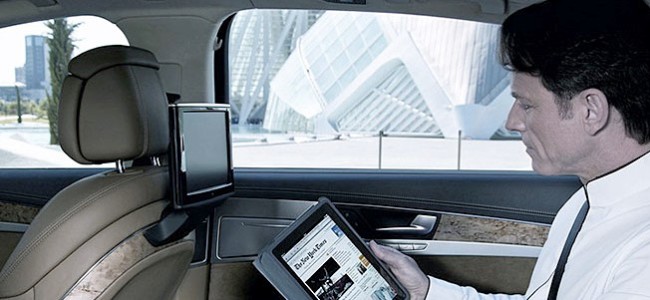
 is and that is why they always do everything in their power to ensure that your time is not wasted.
is and that is why they always do everything in their power to ensure that your time is not wasted. wn especially one that you are not familiar with can cause you to late for an important meeting.
wn especially one that you are not familiar with can cause you to late for an important meeting.
 350 acres of land and even has 32 bedrooms for everyone who might be attending the wedding.
350 acres of land and even has 32 bedrooms for everyone who might be attending the wedding. Wantisden Valley is a Suffolk wedding reception venue that features an 18th-century cottage and a brick and flint farm for events. This is also home to some open grass fields for outside dinner events.
Wantisden Valley is a Suffolk wedding reception venue that features an 18th-century cottage and a brick and flint farm for events. This is also home to some open grass fields for outside dinner events.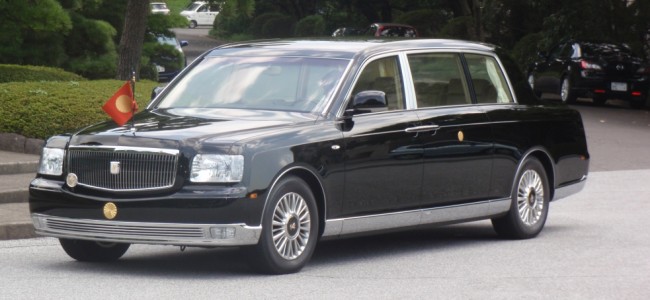
 Finding an airport transfer service in Perth may sound simple because there are many companies out there that are offering their services. However, the real challenge comes when talking about the right company. Keep in mind that not all the airport transfer service providers in the said location have the same quality of service. Some can meet your expectations while some cannot. Therefore, it is very important to put your effort on finding the right company.
Finding an airport transfer service in Perth may sound simple because there are many companies out there that are offering their services. However, the real challenge comes when talking about the right company. Keep in mind that not all the airport transfer service providers in the said location have the same quality of service. Some can meet your expectations while some cannot. Therefore, it is very important to put your effort on finding the right company. Somewhere down the road, you will find it hard to choose among the companies that you have listed down. Consider the ratings and reviews online. This information is quite useful in order for you to determine which company is the right one that would suit your airport transfer needs.
Somewhere down the road, you will find it hard to choose among the companies that you have listed down. Consider the ratings and reviews online. This information is quite useful in order for you to determine which company is the right one that would suit your airport transfer needs.
 You will only have to pack the item that you will need during your trip at the beginning and at the end of your trip. When you get to the ship, you will unpack your items and use them as you travel from location to location, Island to Island without having to pack and unpack. Packing and unpacking your items can make you journey to different places in the world stressful. However, when you are on a cruise ship, you will be able to enjoy your whole vacation from the beginning to the end without going through the stress of packing up you items every time you want to leave one location to go to another.
You will only have to pack the item that you will need during your trip at the beginning and at the end of your trip. When you get to the ship, you will unpack your items and use them as you travel from location to location, Island to Island without having to pack and unpack. Packing and unpacking your items can make you journey to different places in the world stressful. However, when you are on a cruise ship, you will be able to enjoy your whole vacation from the beginning to the end without going through the stress of packing up you items every time you want to leave one location to go to another. Cruise ships come in all sizes and shapes. Today’s cruise ships have been designed with the intention of making everyone on board happy. There are so many things that you will enjoy doing alone and those that you can enjoy with your spouse or family. You can go to a casino, play your favorite outdoor games, enjoy a drinking at the bar, go to an educational lecture, watch a movie, go to a live performance or just sleep as the sheep sails across the sea. You will always have something interesting to do as the ship sails from one great location to another.
Cruise ships come in all sizes and shapes. Today’s cruise ships have been designed with the intention of making everyone on board happy. There are so many things that you will enjoy doing alone and those that you can enjoy with your spouse or family. You can go to a casino, play your favorite outdoor games, enjoy a drinking at the bar, go to an educational lecture, watch a movie, go to a live performance or just sleep as the sheep sails across the sea. You will always have something interesting to do as the ship sails from one great location to another.
 et inspiration from other writers. However, you should make sure that you are unique, so you should never duplicate their work. You need to enjoy reading other blogs so that people enjoy reading your blog too. By doing this, it will be easier for you to come up with new ideas for your blog content.
et inspiration from other writers. However, you should make sure that you are unique, so you should never duplicate their work. You need to enjoy reading other blogs so that people enjoy reading your blog too. By doing this, it will be easier for you to come up with new ideas for your blog content. having a unique voice as you write different travel topics. Try to write on topics that have not been written about different travel destinations. Write about unique travel experiences, activities and attractive sites that people can enjoy visiting. Make sure that your photos are unique in a way that they cannot be found on other blogs. By being unique, your readers will also hold your blog as exceptional and like it.
having a unique voice as you write different travel topics. Try to write on topics that have not been written about different travel destinations. Write about unique travel experiences, activities and attractive sites that people can enjoy visiting. Make sure that your photos are unique in a way that they cannot be found on other blogs. By being unique, your readers will also hold your blog as exceptional and like it.
 digital devices or newspapers on the remote islands. You will find certain villa stays, which are based on food experience or just nightlife. Moreover, there are villas that are designed for families and friends.
digital devices or newspapers on the remote islands. You will find certain villa stays, which are based on food experience or just nightlife. Moreover, there are villas that are designed for families and friends. unique excursions and activities. Every villa provides different excursions from diving to seaplane tours. However, not all villas have swimming pools, spas, or water sports equipment. Therefore, before you conclude on your choice of private luxury villa, ensure they have all activities or accommodations you want during your vacation.
unique excursions and activities. Every villa provides different excursions from diving to seaplane tours. However, not all villas have swimming pools, spas, or water sports equipment. Therefore, before you conclude on your choice of private luxury villa, ensure they have all activities or accommodations you want during your vacation.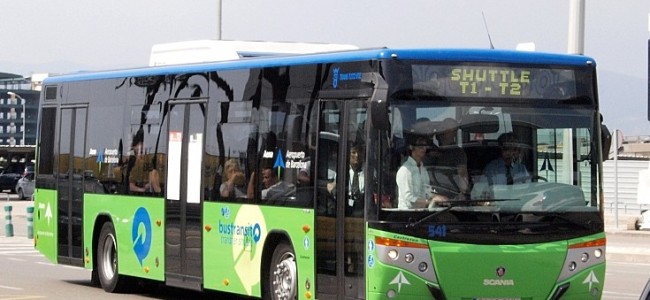
 buses cater to transportation companies, college and university campuses, churches, resorts, airports as well as many more.
buses cater to transportation companies, college and university campuses, churches, resorts, airports as well as many more. 2. School Shuttle Bus: Buses continually travel within a university or hotel as well as transport passengers to and from major areas within the schools. These buses circulate within the school constantly and are hence very valuable to the daily commuters within a school as well as for the visitors of a hotel.
2. School Shuttle Bus: Buses continually travel within a university or hotel as well as transport passengers to and from major areas within the schools. These buses circulate within the school constantly and are hence very valuable to the daily commuters within a school as well as for the visitors of a hotel.

 international language. There are likewise numerous bi-lingual speaking individuals in the world. It is not that unusual.
international language. There are likewise numerous bi-lingual speaking individuals in the world. It is not that unusual. There is a great deal of people who just want to talk English much better. They may have grown up in a home where two languages were spoken, and they have a rudimentary understanding of English. They wish to boost their English capabilities. This makes it easy to teach English in this environment as they really wish to learn the language. This is different from pupils in Jr high that have no passion for studying English as a first or second language or other subjects.
There is a great deal of people who just want to talk English much better. They may have grown up in a home where two languages were spoken, and they have a rudimentary understanding of English. They wish to boost their English capabilities. This makes it easy to teach English in this environment as they really wish to learn the language. This is different from pupils in Jr high that have no passion for studying English as a first or second language or other subjects. more kind of business. These workers will have to be fluent in English to achieve success at their tasks. A lot of individuals are employed in teaching English to these staff members. They may be required to teach English to these employees in their home nation prior to coming over to the United States. Therefore teaching English is one job that will always be in demand.
more kind of business. These workers will have to be fluent in English to achieve success at their tasks. A lot of individuals are employed in teaching English to these staff members. They may be required to teach English to these employees in their home nation prior to coming over to the United States. Therefore teaching English is one job that will always be in demand.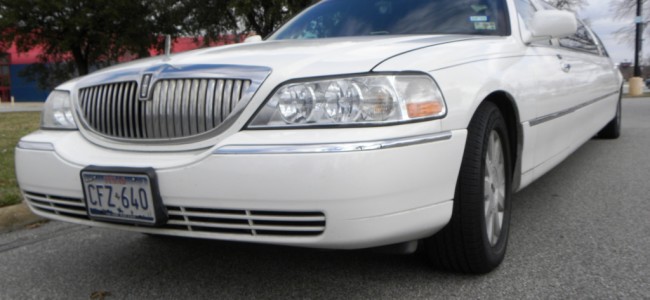
 some cases, you might miss it altogether. In fact, you should book three months in advance. Although, it appears to be too early, you may be surprised with the high demand for this service. If you start planning early, it will be easy to get the exact package you want. If you do not want to face the problem of limited selection, it is better to start early.
some cases, you might miss it altogether. In fact, you should book three months in advance. Although, it appears to be too early, you may be surprised with the high demand for this service. If you start planning early, it will be easy to get the exact package you want. If you do not want to face the problem of limited selection, it is better to start early. service. Such extras include things such as chocolates, champagne, and drinks.
service. Such extras include things such as chocolates, champagne, and drinks.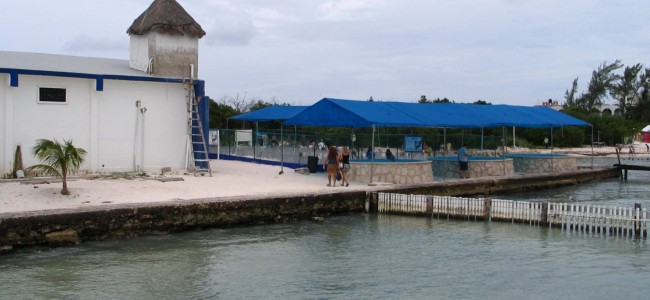

 As we all know, tickets on airlines go up and down with the season. If you book early, you will get better rates, and the late bookings will have to ay premium prices. Unless you wish to drive to Cancun and then take a ferry to the island.
As we all know, tickets on airlines go up and down with the season. If you book early, you will get better rates, and the late bookings will have to ay premium prices. Unless you wish to drive to Cancun and then take a ferry to the island.
 When traveling, it can be difficult to know how to
When traveling, it can be difficult to know how to 


 The reviews will provide you with insight into what you can expect from a given hostel accommodation. There are also professional reviews, which offer balanced views and they also offer particular details about the amenities included.
The reviews will provide you with insight into what you can expect from a given hostel accommodation. There are also professional reviews, which offer balanced views and they also offer particular details about the amenities included. may have a completely different plan including the loud party. Come with some earplugs, a blindfold, and an iPod. These will help your body to tune out light and noise as you sleep.
may have a completely different plan including the loud party. Come with some earplugs, a blindfold, and an iPod. These will help your body to tune out light and noise as you sleep.
 both retired and working people. The busy lifestyle can make it quite difficult to take care of your household and stuff. It can be helpful for people planning to stay in a particular place. It is necessary to find concierge services that meet your particular requirements. The following are some tips, which help you get right service:
both retired and working people. The busy lifestyle can make it quite difficult to take care of your household and stuff. It can be helpful for people planning to stay in a particular place. It is necessary to find concierge services that meet your particular requirements. The following are some tips, which help you get right service: that does multiple tasks. For instance, you may need a babysitter. Shortlist agencies according to services they offer and your needs.
that does multiple tasks. For instance, you may need a babysitter. Shortlist agencies according to services they offer and your needs.
 sedans, spacious minivans, and limousines. Therefore, you will be able to get good transport to your preferred destination.
sedans, spacious minivans, and limousines. Therefore, you will be able to get good transport to your preferred destination.
 a result of its inviting climate and also the many activities to do and also places to view, vacationers tend to stay longer than they planned. Facilities are inexpensive, as well as the sports activities, excursions, and also travelling offers are all interesting and fun.
a result of its inviting climate and also the many activities to do and also places to view, vacationers tend to stay longer than they planned. Facilities are inexpensive, as well as the sports activities, excursions, and also travelling offers are all interesting and fun. Although sightseeing could be the first thing that they would certainly want to do, the countless tasks awaiting after that may allow them to experience the entire excitement they are about to start. They could start with soft experience excursions with elephant trips. The many tasks that visitors might choose from consist of horseback riding, balloon flights where they can also enjoy seeing the scenery from the sky.
Although sightseeing could be the first thing that they would certainly want to do, the countless tasks awaiting after that may allow them to experience the entire excitement they are about to start. They could start with soft experience excursions with elephant trips. The many tasks that visitors might choose from consist of horseback riding, balloon flights where they can also enjoy seeing the scenery from the sky. popular Muay Thai, regardless of the degree of experience’ from novices to specialists. Bowling is likewise a commodity supplied at the different bowling alley in the city. Vacationers can additionally try playing golf at the various golfing clubs found everywhere. Ice skating rinks are likewise there for everyone to attempt and also enjoy.
popular Muay Thai, regardless of the degree of experience’ from novices to specialists. Bowling is likewise a commodity supplied at the different bowling alley in the city. Vacationers can additionally try playing golf at the various golfing clubs found everywhere. Ice skating rinks are likewise there for everyone to attempt and also enjoy.
 holiday as no matter what activities you enjoyed all day, you can come back to your apartment and relax in the hot tub to take all the tiredness out of your muscles. Since many of us lead sedentary lives except when on holidays, this is an important consideration. Muscles that don’t get used much are bound to be tight or sore for the first several days of activity.
holiday as no matter what activities you enjoyed all day, you can come back to your apartment and relax in the hot tub to take all the tiredness out of your muscles. Since many of us lead sedentary lives except when on holidays, this is an important consideration. Muscles that don’t get used much are bound to be tight or sore for the first several days of activity. Lodges, Chalets, retreats and several other sorts of Port Grimaud accommodation are abundant within the Var department in the Provence-Alpes-Côte d’Azur region in southeastern France. And you just have to select one particular that can present you with everything you’ll need for an excellent snow holiday. You might prefer to factor in spending the budget, or you might be looking for a very luxurious spot to stay and for every particular want, there’s a great hotel or apartment that can satisfy you. It wouldn’t matter if you’re travelling together with your loved ones or just with your partner- the accommodations within Port Grimaud are full range adequate to produce the snow holiday of the dreams come true.
Lodges, Chalets, retreats and several other sorts of Port Grimaud accommodation are abundant within the Var department in the Provence-Alpes-Côte d’Azur region in southeastern France. And you just have to select one particular that can present you with everything you’ll need for an excellent snow holiday. You might prefer to factor in spending the budget, or you might be looking for a very luxurious spot to stay and for every particular want, there’s a great hotel or apartment that can satisfy you. It wouldn’t matter if you’re travelling together with your loved ones or just with your partner- the accommodations within Port Grimaud are full range adequate to produce the snow holiday of the dreams come true. you’ve got the cash to pay for this high quality, there’s no other high quality with accommodations such as the one particular provided to you in the Stables. You will have each sort of appliance, and you’ll be spending your time at in the apartment of the chalet that’s equipped with luxury furnishings. If that isn’t enough for you, you have the magnificent view of the Port Grimaud to convince you that this is the most effective location to hang your hat.
you’ve got the cash to pay for this high quality, there’s no other high quality with accommodations such as the one particular provided to you in the Stables. You will have each sort of appliance, and you’ll be spending your time at in the apartment of the chalet that’s equipped with luxury furnishings. If that isn’t enough for you, you have the magnificent view of the Port Grimaud to convince you that this is the most effective location to hang your hat.
 To be sincere, there are hundreds of annoying circumstances that could short live your fun time and cause you to cancel your trip, and return home early. The most common cause being sickness, but not entirely limited to it; thus bringing us to the question, is
To be sincere, there are hundreds of annoying circumstances that could short live your fun time and cause you to cancel your trip, and return home early. The most common cause being sickness, but not entirely limited to it; thus bringing us to the question, is it, they can cover you should you cause any damage to yourself or others by accident.
it, they can cover you should you cause any damage to yourself or others by accident.